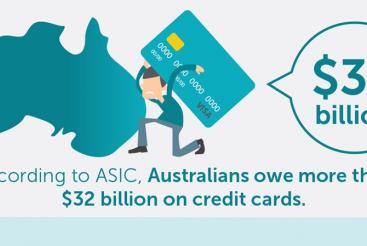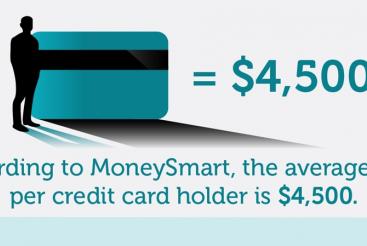Are you doing credit card management all wrong?

Bessie Hassan | Money Expert at finder.com.au
Whether you need to fund an overseas trip, renovate your property, pay for school fees or just make ends meet, you’ll probably need to sign up for a credit card at some point in your life (if you haven’t already).
Due to the high interest that most cards attract, it’s crucial that you repay your credit card balance as soon as possible. It’s also important that you arm yourself with the knowledge and techniques required to manage your credit card to the best of your ability. Unfortunately, many people make the mistake of paying too much in interest or fees, while others just don’t know the first thing about managing their balance.
To ensure that you’re not doing it all wrong, here are some ways that you can manage your credit card the right way.
1. See what interest rates are on offer
When it comes to applying for a credit card, one of the smartest things you can do is to compare the interest rates available. These days the financial market is fiercely competitive and many lenders will be willing to offer you a lower rate and attractive features. Shop around online and see what different credit cards are on offer and what sort of interest rates are being charged.
Currently, the average purchase rate is 17.24% so keep this in mind as a benchmark when you’re doing your research. Of course, you should also think about the sort of fees that are being charged, such as cash advance fees or annual fees (some can be as high as $150 per annum!).
2. Repay more than the minimum
Banks will often nominate a minimum repayment amount that you will need to pay each month. However, you shouldn’t assume this is the maximum that you need to pay. Instead, you should throw any extra cash you have towards your credit card so that you can chip away at your balance so you can repay your balance sooner. Even paying an extra $80 per month could make a huge difference.
3. Service high-interest cards first
If you have more than one credit card, prioritise paying off the account with the highest interest rate first. You should allocate all your available funds to this account and once you’ve fully repaid it, you can then move onto the account with the next highest interest. This way, you can work towards minimising your interest charges so you’re not stuck with a high-interest account for longer than you need to be. For example, if you have one account that charges 18% interest and another account that charges 13% interest, you should work towards servicing the account with the 18% interest rate as a priority.
4. Sign up for a 0% balance transfer credit card
Opting for a 0% balance transfer credit card allows you to transfer your existing debt onto another card with a lower (or no) interest rate. With a balance transfer, the idea is that you repay as much of your balance as you can during the interest-free period. Doing this allows you to repay your balance quickly without accruing any interest (however, just be mindful of what the rate will revert back to after the interest-free period, as sometimes this can be very high).
5. Resist the urge to increase your limit
Drawing on credit can be a convenient way to manage life’s expenses, but don’t fall into the trap of signing up for multiple credit cards or regularly increasing your limit. If you increase your limit, you’re only getting yourself into more debt for longer. Even increasing your limit by $2,000-$3,000 could mean a whole lot more interest for you to pay.
6. Set up an automatic transfer
Using your bank’s online banking facility or app, you can set up automatic credit card payments. Setting up an online transfer means you don’t have to worry about when your payment is due. Instead, you can trust that your payments will always be made in full and on time (and this can help you build up a good repayment record too!).
--
With a myriad of expenses to think about in our everyday lives, using a credit card can be an effective solution, as long as you can manage your repayments correctly. Empower yourself with the information you need to make smart choices with your credit card and you’ll be able to realise your goals, whatever they may be.
Get your Equifax credit report for FREE today
Learn moreYou might also like

Are Australians getting smarter about credit?
New research has indicated that Australians are paying off their credit cards faster than they are accruing in new transactions.

3 credit card mistakes that might be adding to your bill
Is your credit card debt racking up faster than expected? You could be the victim of one of these three common card-bearer mistakes.

3 tips for paying off multiple credit card debts
Having multiple credit cards brings many benefits, but it also presents drawbacks. What happens if you start accumulating debts? Make sure you have a plan ready.
